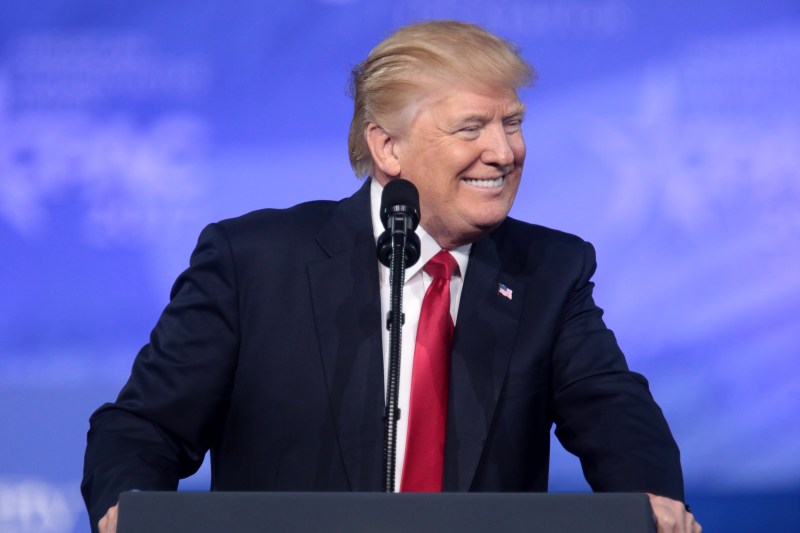President Donald Trump signed an executive order on Dec. 11 that aims to redefine anti-Semitism on college campuses, sparking conversations surrounding student safety and free speech.
Section 1 of the executive order reads, “while Title VI does not cover discrimination based on religion, individuals who face discrimination on the basis of race, color, or national origin do not lose protection under Title VI for also being a member of a group that shares common religious practices. Discrimination against Jews may give rise to a Title VI violation when the discrimination is based on an individual’s race, color, or national origin.”
The crux of the order hinges on Title VI of the Civil Rights Act of 1964, which prevents discrimination based “on the ground of race, color, or national origin” by “any program or activity receiving Federal financial assistance.” The executive order would apply to the many college campuses that receive federal funding, including Stanford.
The change would make it “the policy of the executive branch to enforce Title VI against prohibited forms of discrimination rooted in anti-Semitism as vigorously as against all other forms of discrimination prohibited by Title VI,” according to Section 1 of the executive order.
Of note, the wording of Title VI does not include discrimination based on religion. This distinction led The New York Times to claim that “the order will effectively interpret Judaism as a race or nationality, not just a religion.”
Vox pushed back on this claim, pointing to section 2 of the executive order, to underline that the definition of anti-Semitism being used is in line with the definition of anti-Semitism adopted by the International Holocaust Remembrance Alliance (IHRA), which states that “antisemitism is a certain perception of Jews, which may be expressed as hatred toward Jews.”
Regardless of the exact classification of the new definition, it will likely help crackdown on anti-Jewish bias on campuses according to The New York Times. Even before the executive order, Kenneth Marcus, head of the Education Department’s Office for Civil Rights, had launched a “national origin” investigation of Stanford’s admission process.
According to Stanford spokesperson E.J. Miranda, a complaint was filed with the Education Department’s Office for Civil Rights by an individual who was not admitted to Stanford’s undergraduate program.
“OCR has been investigating whether the individual was discriminated against on the basis of his being white, male and of Jewish ancestry,” Miranda wrote in an email to The Daily. “The university also has investigated the facts of the matter and determined that the allegations are unfounded. The university takes any allegations of discrimination extremely seriously and continues to be deeply committed to nondiscriminatory admission practices.”
However, with the adoption of the IHRA definition of anti-Semitism, new problems may arise. For one, it could curtail pro-Palestinian speech on campuses, which might be deemed anti-Semitic by the IHRA definition, according to lead author of the IHRA definition Kenneth Stern. Stern wrote in a 2016 New York Times piece that applying it to college campuses is a misuse of the definition.
“The definition was intended for data collectors writing reports about anti-Semitism in Europe. It was never supposed to curtail speech on campus,” Stern wrote. “It is easy to imagine calls for university administrators to stop pro-Palestinian speech. Even if lawsuits alleging Title VI violations fail, students and faculty members will be scared into silence, and administrators will err on the side of suppressing or censoring speech.”
At Stanford, the impact of such an executive order could be significant. Earlier this year, Ben Shapiro’s talk on campus brought the issue of free speech on college campuses to center stage. Future speakers would now be subject to the guidelines set forth by the executive order, potentially curtailing free speech on campus.
Since there’s not set precedent yet, the impact of this executive order largely depends on how it plays out at other universities and whether Stanford follows a similar protocol.
Contact Ujwal Srivastava at ujwal ‘at’ stanford.edu
